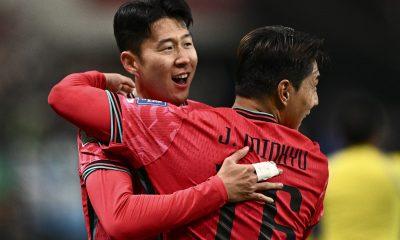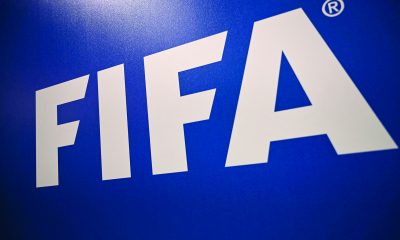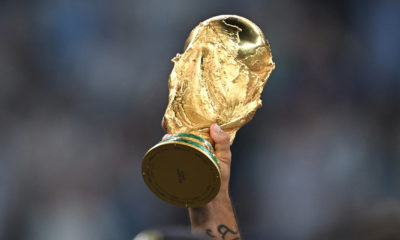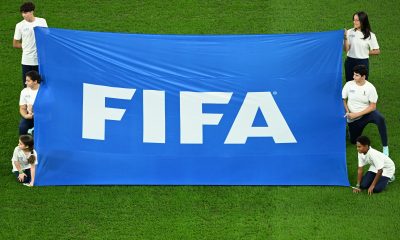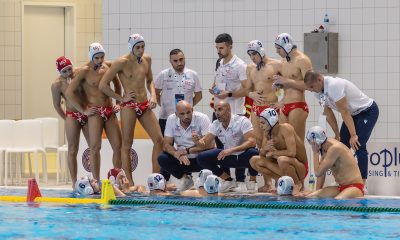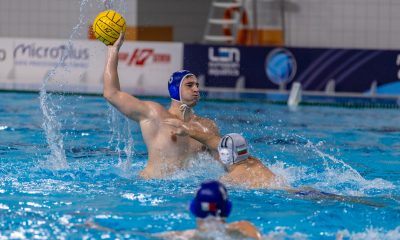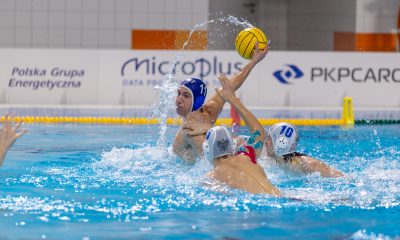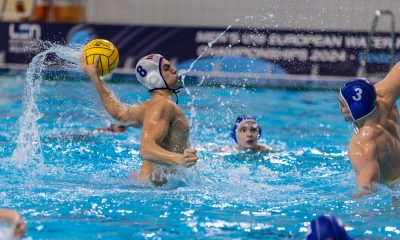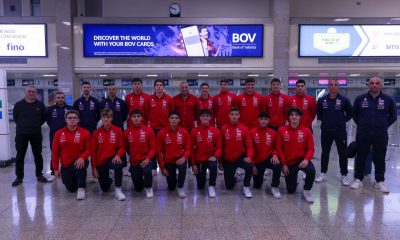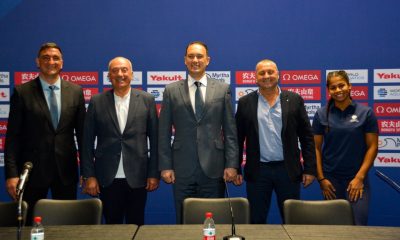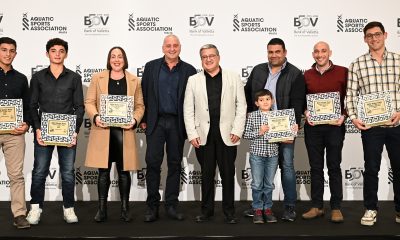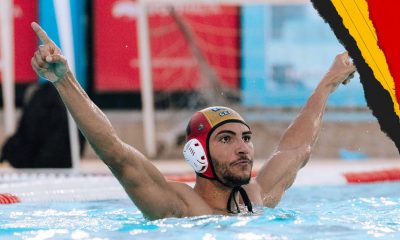
Malta international Stevie Camilleri aired his frustration at the fact that waterpolo players have not been allowed to train yet, despite certain Covid-19 measures being loosened.
The AS Roma Nuoto player has been playing professionally for the past 12 years and fears that a break such as this doesn’t only undermine his current situation, but also puts his future at risk.
“I’m 32-years-old and I’ve never stopped for this long so I don’t know what impact it will have on my career past this pandemic,” Camilleri told The Sunday Times of Malta.
The Italian Serie A1 was scrapped in March, while Camilleri was among the leading scorers with 48 goals from 16 matches.
“Obviously I’m disappointed as I’d have liked to finish the season,” he said.
“Given the final decision, it was basically as if it never happened, in the sense that we made a lot of effort and sacrifices and one would want to have something to show for that. We weren’t given the opportunity.”
Camilleri explained that looking at statistics, Malta’s situation is being handled correctly as numbers are clearly below what was initially expected. However, he believes it “doesn’t necessarily mean that everything is positive”.
Camilleri lamented that while restrictions have been loosened for things such as hunting, which is not considered a necessity, and which has no structure and supervision over whether it is being done correctly, sport has been left in the dark.
“My understanding is that sport should have been introduced before things like hunting for example,” the Malta captain said.
“In a way, I understand but in others, obviously, I think (the measures) leave much to be desired in the sense that we could have done better in other areas.
“Sport is a structured thing where you have coaches, staff, medical staff also in some cases, who can monitor whereas a lot of things that were opened have no monitoring and no one is there to supervise or make sure that restrictions are respected.
“Unlike hunting, sport in general has measures and protocols which can be introduced easily and can be enforced. Having said that, I think little is being done by federations and whereas abroad they are proposing certain protocols for health authorities to revise, in Malta we are simply sitting back and expecting the health authorities to come up with them.
“I think there has to be more initiative from the associations, federations and even the Olympic Committee.”
Camilleri also said that mentality is holding Malta back. While many waterpolo players are on semi-professional contracts they are still paid to perform, thus making it anything but a hobby.
“Waterpolo, for most of us, is our passion and our job so we’re getting the double effect of the pandemic. Obviously, sport is important at all levels but if it is someone’s bread and butter it becomes that much harder,” Camilleri remarked.
“In my opinion, sport in general (in Malta) is considered a hobby where a jog, walk or a swim in the sea can replace the benefit of having a structured sport which frankly isn’t the case – they’re two different things!
“This is something I’ve been bringing up for many years when people ask how come we always come short or don’t take part in bigger competition. This exemplifies all – it is the reason why not and the results as a nation represent this.”
Asked about how safe it is to consider restarting sport at this stage, Camilleri explained there are various stages to sport where training determines when competition resumes.
“The later you prolong actually starting to train, the more you’re pushing the time forward to introduce competition,” he explained.
“My opinion right now is just to get started – whether it’s at senior level and later younger level, at least I would expect a starting point. When things get back to normal you have to spend the next month training so you’re pushing the schedule and the calendar a month forward whereas if you start now, once everything gets back to normal, you can start competition.”
With athletes already two months into the pandemic’s repercussions, which have forced them to look at other ways to practice their sport, motivation has been an issue for Camilleri.
“It’s hard because there isn’t much you can do,” he admitted.
“We stay in contact because it helps, being a team sport. We try to commit to the same programme so that once we start, we’re on the same level but on a personal level it’s hard to remain motivated especially when you know that all your sacrifices are not being taken into consideration.”
The 32-year-old stressed that before the pandemic, he had been looking forward to a break but now craves to start again.
“I’ve been going for the last 12 years so quite honestly, in the beginning, I was looking forward to a break. But after time goes by, you just want to start again,” he explained.
“I’ve even gone to the extreme of swimming in 16 degrees water, which is not something that we normally do.”
Camilleri made clear that even though Malta is surrounded by sea, it’s not the same.
“You cannot just show up at ay bay and start. You have to see if it’s full, if the sea’s rough, and the problem of jellyfish,” he said.
“I’ve tried it for the past month but there’s no real schedule – I can’t plan because I’m dependent on the weather, jellyfish and construction in some places.”
Low risk
This concern comes after research carried out by the Italian Olympic Committee which shows aquatic sport is the ‘least dangerous’ with studies claiming chlorine and acids in pools lower the risk of virus contraction.
“This is our frustration. We are the ones most limited because we can’t train at home, yet through studies it seems to be the safest of all sports,” Camilleri remarked.
“The issue (authorities) are honestly facing is that in Malta we tend to generalise. If waterpolo were to start, you’d obviously be expecting a concourse of other sports and by allowing one, they’ll have to deal with another ten, and where do you stop?”
Camilleri’s contract with Roma expires at the end of the season.
“You can’t really make commitments, because we don’t know if borders are going to be opened so I don’t know what the possibilities of me playing abroad are right now,” he said.
“I have two young children whom I won’t be taking with me because the situation makes everything that much harder so I have to see what the conditions are – would I be allowed to come back freely or will I have to do some weeks (quarantined) here?
“Commitments abroad are hard to decipher as I don’t know what I’m getting myself into and not even the club knows.”

World Cup News
-
FIFA World Cup
/ 1 month agoSon scores but Thailand hold South Korea in World Cup qualifier
Son Heung-min scored but South Korea were held 1-1 at home by Thailand in...
By AFP -
FIFA World Cup
/ 1 month agoJapan-N. Korea World Cup game to stay in Pyongyang, JFA says
Japan’s World Cup qualifier against North Korea will be played in Pyongyang as planned...
By AFP -
FIFA World Cup
/ 2 months agoGerman ex-FA bosses on trial over World Cup tax evasion
Three German ex-top football officials went on trial on Monday in a 13.7-million-euro ($14.8...
By AFP -
FIFA World Cup
/ 2 months agoSaudi Arabia formally launches bid for 2034 World Cup
Saudi Arabia formally launched its bid to host the 2034 World Cup on Friday,...
By AFP

BOV Premier League
Watch: Ħamrun Spartans ease past Santa Lucia to maintain winning momentum

English Premier League
Arsenal, Liverpool fight to keep Premier League race alive

Winter Olympics
Watch: Geisenberger wins sixth Olympic medal to tie luge record

